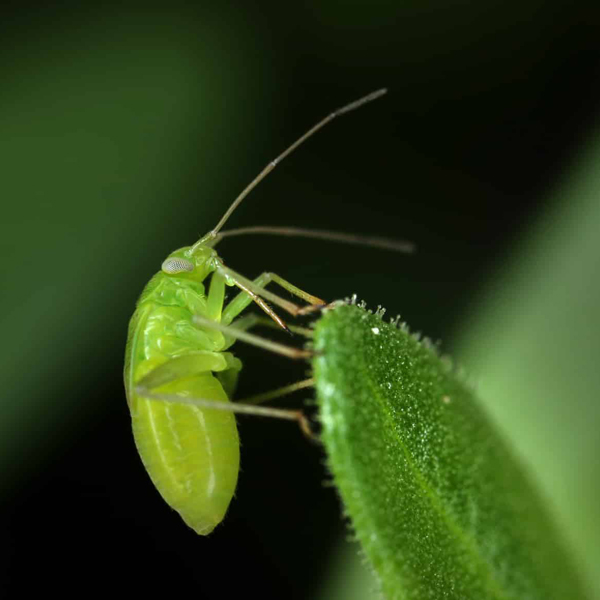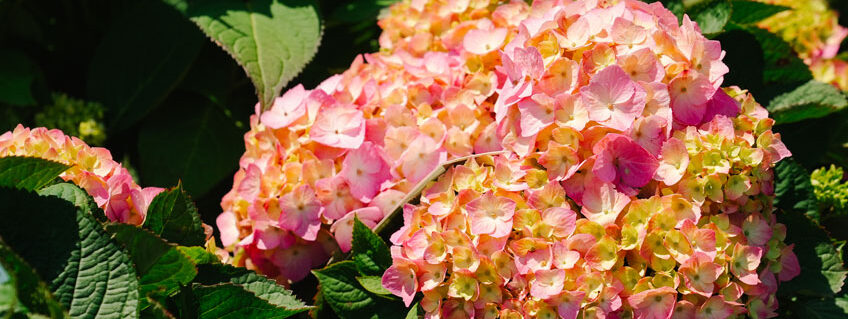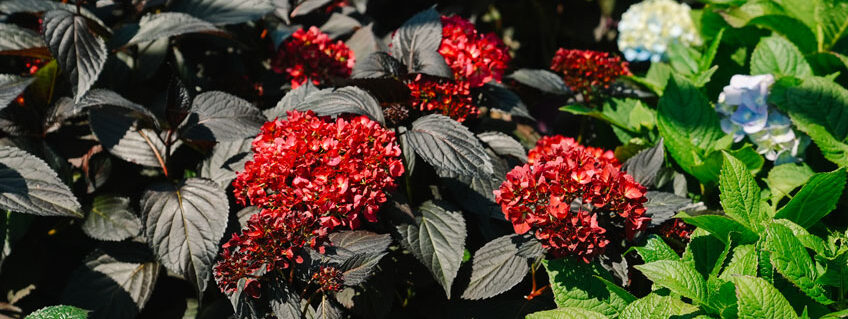By Marie Iannotti at The Spruce
Your houseplants spend all their time indoors where the temperature, sunlight, and humidity may not be optimal. That makes them easy prey for plant pests that find their way indoors. Pests have no natural predators inside, and their population can increase rapidly. Don’t wait until your houseplants are struggling. Check your indoor plants regularly for signs that an insect has infested. Catching them early is your best chance of saving your houseplants.
Here are 10 of the most likely suspects and how to control them.
1. Aphids look like small green, white, yellow, or black spots that can appear on all parts of a plant. They weaken plants by sucking on the stems and leaves. Aphids can reproduce so quickly that an infestation will cover the plant in days. Aphids are soft-bodied insects and can be killed quite easily by a strong blast of water in the shower or repeated sprays of insecticidal soap. But they are persistent and you will need to remain diligent to rid your houseplants of these pests.
2. Broad mites and cyclamen mites are less common pests, but they can do considerable damage to the growing tips of plants. They are too tiny to see with the eye, but if the tips of your houseplant start looking stunted, distorted, or the leaves start curling, you can suspect mites are there. Favorite plants include African violet, begonia, cyclamen, and several tropical houseplants. Some cases can be treated with a miticide, insecticidal soap, or horticultural oil if you can completely cover the plant with the spray. Usually, it is best to simply dispose of the infested plant, so the mites do not spread.
3. Fungus gnats are tiny flies that hover around indoor plants and fly up in a cloud when disturbed. The adults do not do much damage, but the larval stage feeds on feeder roots along with organic debris and fungus in the potting soil. They favor damp soil and are a bigger problem with seedlings than with established houseplants. You can catch the adults with yellow sticky traps, which will cut down on the population. Allow the soil to dry completely for several days, to kill any existing eggs and larvae. A commercially available product called Mosquito Bits can be helpful.
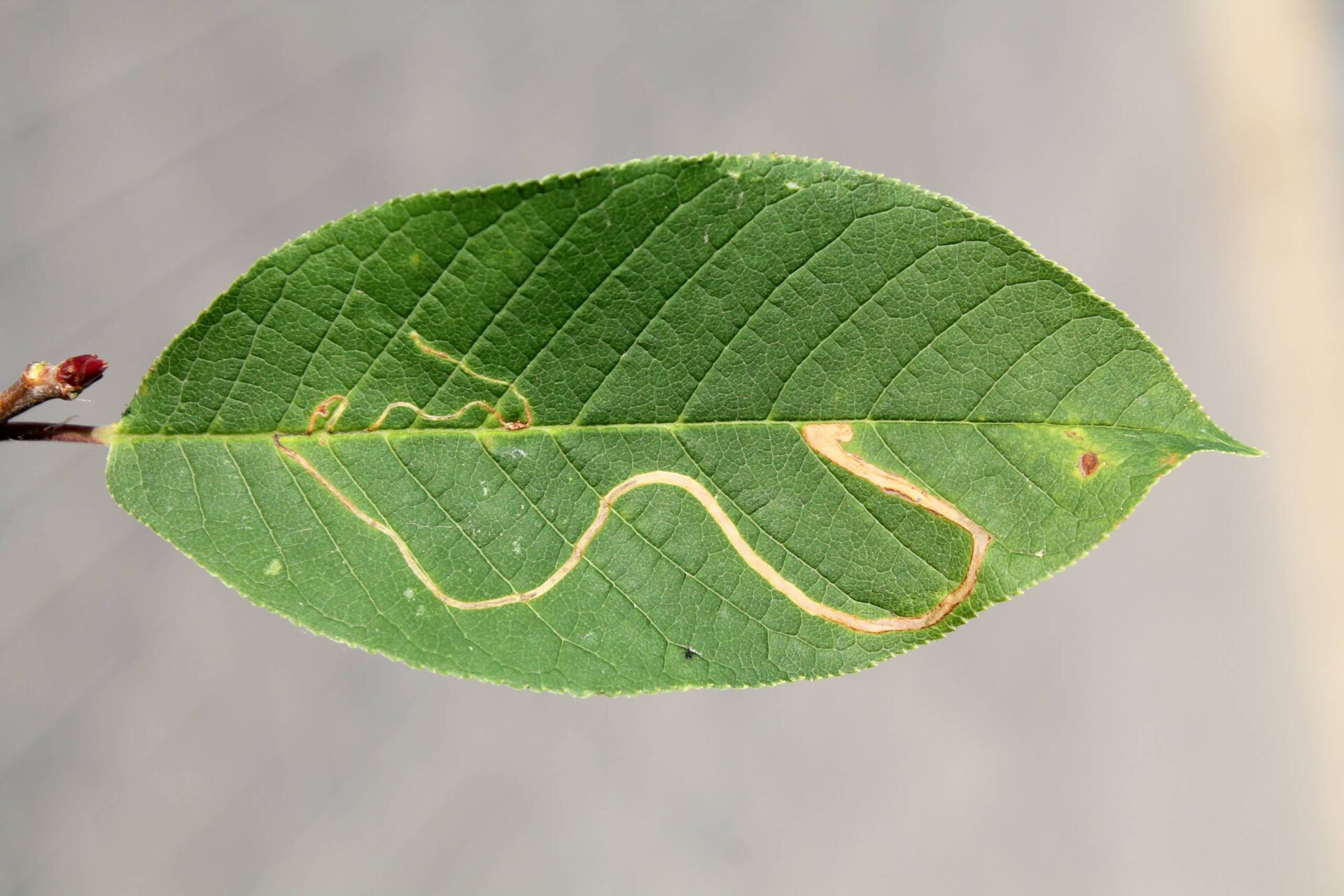
4. Squiggly lines running through a leaf are a sure sign of leafminer damage. These are generally more of a pest outdoors, but they can follow your plants inside. Leafminers are the larvae of small black flies. The fly lays its eggs in the leaf and the larvae feed their way through the leaves until they are mature enough to emerge. Often the damage is just cosmetic. Leafminer damage on edible greens, like Swiss chard and spinach, can ruin a crop, but on a houseplant, they are just unsightly. You can trap the adults with blue sticky tape and remove any damaged leaves, to keep new flies from emerging. There are a few insecticides that will control leafminers, such as Spinosad, but they are not usually necessary indoors.

5. Mealybugs look like small cottony white blobs, usually attached to the plant at the stem joints, but they may also be found along the stems. They make themselves at home and slowly feed off the plants by sucking. Plants infested with mealy bugs often look like they are drying out, even when they’ve been watered. Mealybugs are very hard to get rid of. If you catch the problem early, cut out the infested branches. You can also dab the mealybugs with a cotton swab soaked in rubbing alcohol. If your plants become severely infested, it would be best to just get rid of them. The mealy bugs are only going to spread.
6. Scales are small insects that attach themselves to the stem of a plant then cover themselves with a hard, oval-shaped shell. Like mealybugs, they slowly suck the sap from plants, leaving them too weak to sustain themselves. A scale infestation is very hard to get rid of. Pesticides often don’t penetrate their hard shells. You may have some luck rubbing the scales off with your nail or a soft brush. Young scales have to crawl unprotected to a new location to set up shop and can be sprayed at this crawler stage with insecticidal soap. The soap has minimal effect on protected adults.
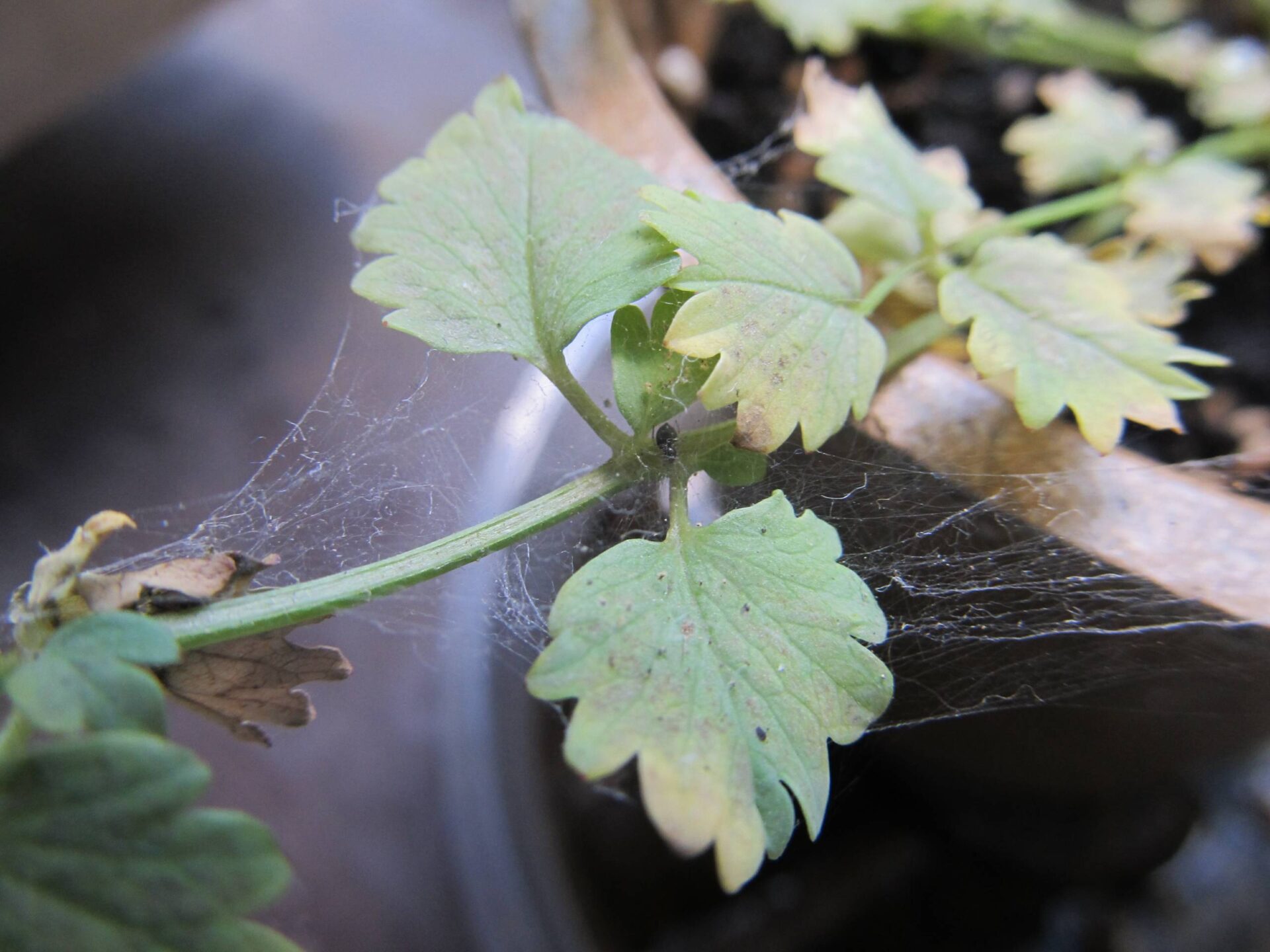
7. Spider Mites leave telltale webbing, especially on the inner joints of plants and in plants with lush foliage. The tiny mites are about the size of a pinhead and injure plants by sucking their juices. Attacked leaves will have yellow stippling. As the infestation gets worse, the leaves will turn totally yellow and brittle and quickly die. To get rid of spider mites, thoroughly spray the affected plants with insecticidal soap. Repeat as recommended on the label.
8. Springtails are tiny wingless insect-like creatures that can jump several inches in the air when disturbed. You probably won’t notice them unless there are several. In a cluster and they all spring upwards together, looking like a small cloud. They favor damp areas, like moist potting soil. Although springtails can feed on roots, when they are in the soil, they don’t do much damage to plants. However, if the soil dries out, the springtails will look for moisture elsewhere, such as a basement or bathroom, where they can become an annoyance. You can vacuum them up or try using diatomaceous earth.
9. Thrips are tiny insects (less than 1/25 inch) that can do a lot of plant damage. They feed in groups, sucking on leaves, flowers, and even fruits. In addition to weakening plants and distorting growth, they also spread disease. Since there are no natural predators indoors, you will need to use some type of contact insecticides, such as neem or insecticidal soap. Be sure to cover all sides of the leaves.
10. Tiny whiteflies tend to hide out on the underside of leaves and fly up in a puff when disturbed. They suck on leaves and stems, weakening plants and causing distortions and discolorations. Whiteflies reproduce very quickly, so catching them early will make eliminating them easier. You can catch them with yellow sticky traps and spray them with either insecticidal soap or horticultural oil. The spray must make contact with the insect to work.


